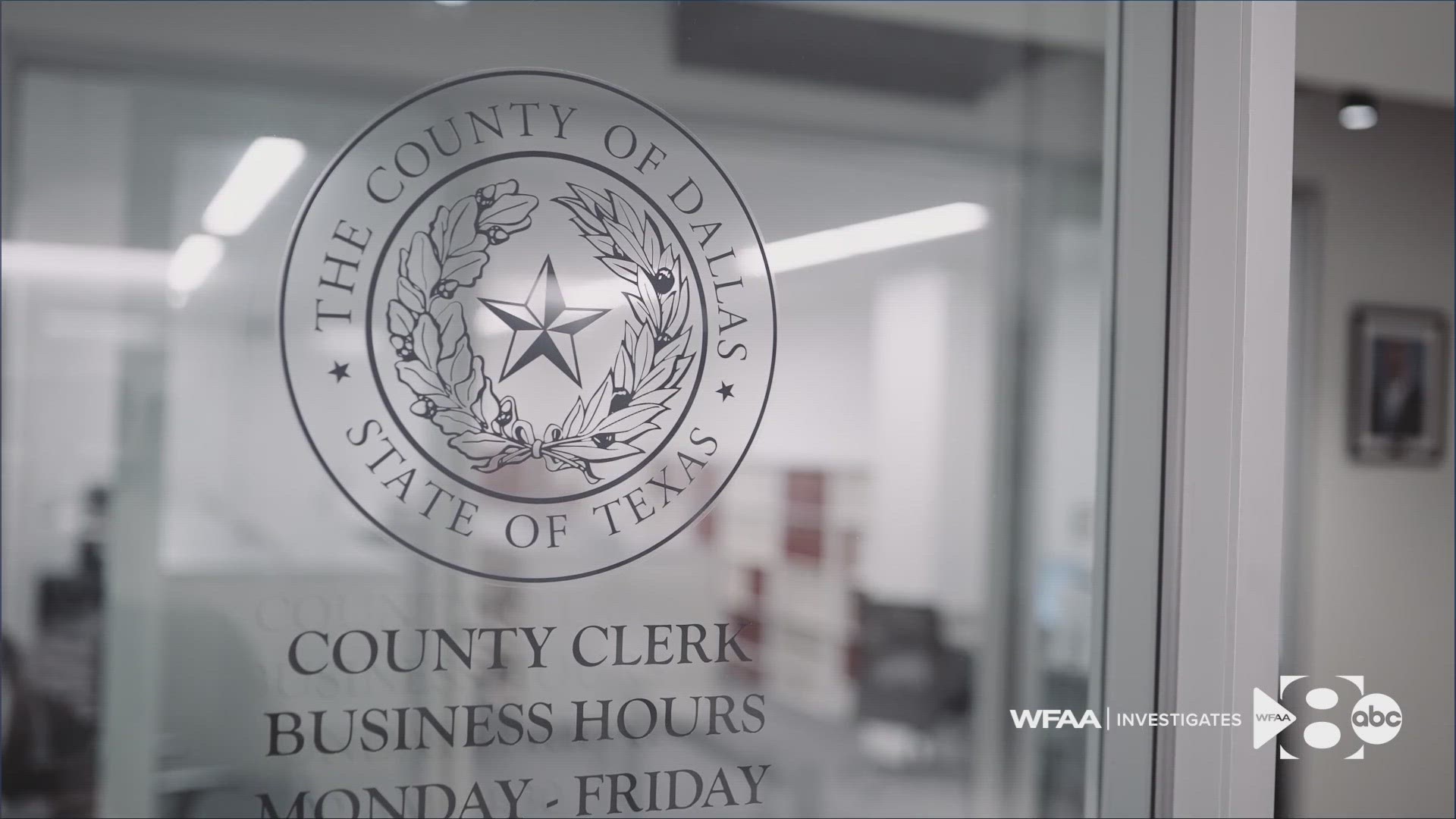DALLAS — Under a new law, Texas clerks can now demand photo identification whenever anyone tries to file paperwork changing a property’s ownership.
More importantly, the new law requires clerks to reject paperwork if a person refuses to show identification.
The new law, aimed at curtailing fraudulent deed transfers, took effect after Gov. Greg Abbott signed the adopted legislation into law on June 9.
Beginning in 2019, WFAA’s “Dirty Deeds” investigation has exposed how thieves have forged people’s signatures on property deeds, and then filed the forged deeds with the county clerk’s office. As a result, the thieves have taken control of property they don’t own.
“We know that people are happy to provide their ID if they're not doing anything wrong,” Rockwall County Clerk Jennifer Fogg told WFAA.
State Rep. Justin Holland, R-Rockwall, sponsored the legislation in the House. State Sen. Bob Hall, R-Commerce, carried the bill in the Senate.
“It's going to cause some bad guy to say, ‘Whew, if you want my photo ID, maybe I don't want to give that to you,’” said Dallas County Asst. District Attorney Phillip Clark, who prosecutes deed fraud cases.
If deed fraud occurs, the new law also makes it easier for investigators to catch thieves.
“At that point, then they will have somewhere to start with the case,” Fogg said.
The new law applies to all clerk’s offices that are set up to receive documents electronically.
Previously, only county clerk’s offices in counties with more than 800,000 people were allowed to ask for identification.
Four counties – Harris, Denton, Tarrant and El Paso – told WFAA last year they require ID when filing deeds in person. However, Dallas County and five other large counties told WFAA last year that they weren’t asking for photo IDs. Officials from the five counties told WFAA that without a mandatory provision they didn’t believe they had the authority to refuse to file a deed.
Empowered with the new law, Dallas County Clerk John Warren said he and his clerks have been creating a process to copy and document the IDs of those who file or make changes to deeds. He said they will begin asking for identification beginning July 1.
The notary system, however, still needs work when it comes to deeds, Clark and Fogg said.
“They authenticate someone's signature on a document so that everyone else in the world can have confidence that this document was signed by this person,” Clark said.
Legislation that would make it a crime to notarize someone’s signature on a deed without the person present didn’t become law this season.
“Notaries are being used,” Clark said. “They're being exploited by criminals.”
When lawmakers reconvene in two years, Clark and Fogg said they will recommend more deed fraud protections.
“As a homeowner, it's our biggest investment, and we have to look out for each other,” Fogg said.
Email investigates@wfaa.com

